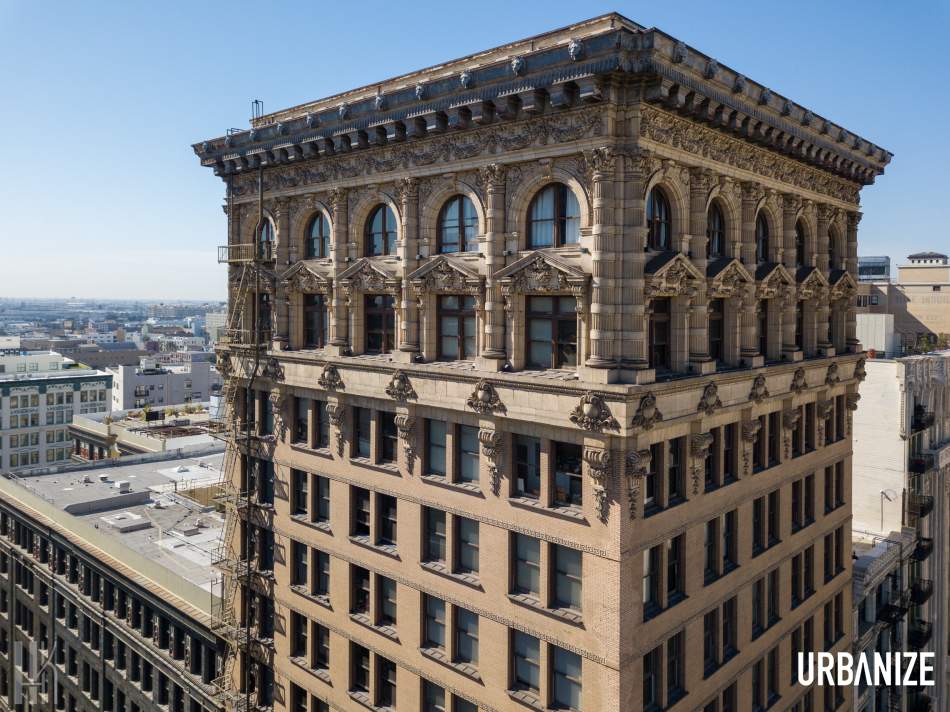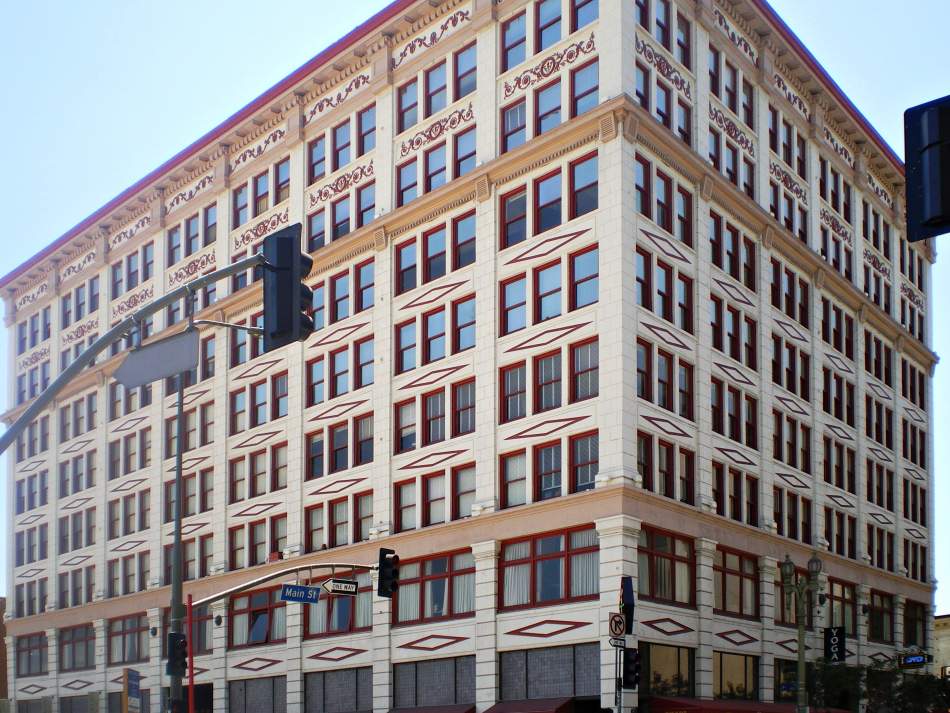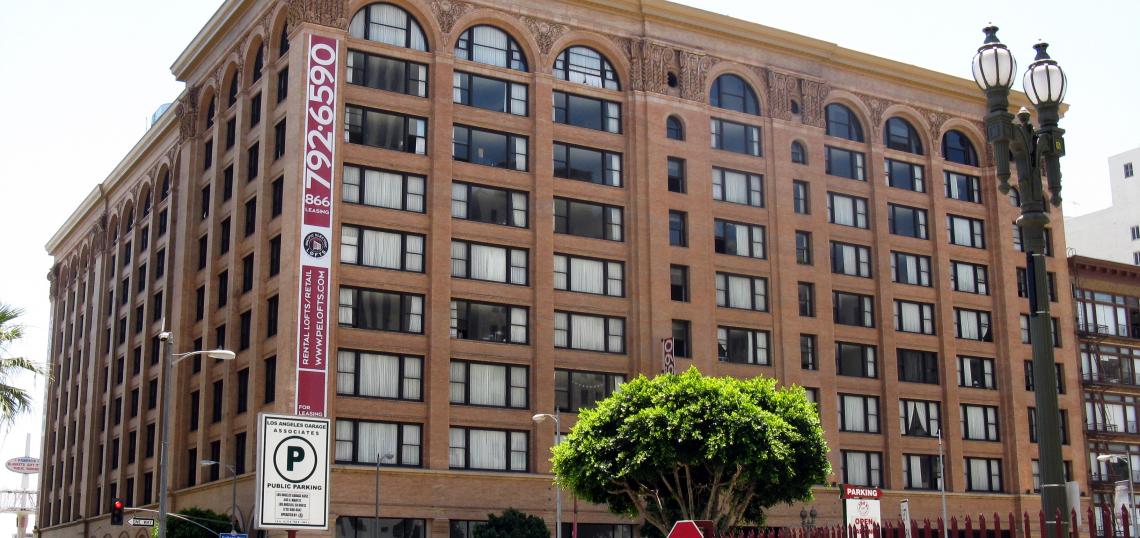Earlier this month, the Los Angeles City Council voted to instruct city staff to draft an ordinance which would expand the adaptive reuse ordinance citywide - on the condition that any new housing created is restricted to moderate-income households. Now that policy could be revised once again in an effort to provide shelter to the region's unhoused residents.
A motion introduced earlier this week by Councilmembers Paul Koretz and Mike Bonin calls for the Departments of City Planning and Building and Safety to report on the feasibility of amending the adaptive reuse ordinance to include transitional and permanent supportive housing developments.
 Aerial view of the Continental Building, which was converted to housing through the adaptive reuse ordinanceHunter Kerhart Architectural Photography
Aerial view of the Continental Building, which was converted to housing through the adaptive reuse ordinanceHunter Kerhart Architectural Photography
"While the [ARO] may be used to facilitate the conversion of older, economically distressed or historically significant buildings from commercial office space into other residential uses...supportive housing and transitional housing are currently not defined as a 'project' or considered 'main uses' in the city's municipal code, and therefore, ineligible," explains the motion.
The proposal from Koretz and Bonin builds off of two reports published by City Controller Ron Galperin's office, which warned that the increasingly high cost of Measure HHH supportive housing projects could deal a setback to the city's effort to combat homelessness. The ballot measure, which was approved by Los Angeles voters in 2016, authorized the issuance of $1.2 billion in bonds to fund the construction of roughly 10,000 units of permanent supportive housing. Based on current trends, the funds will ultimately generate thousands fewer homes than originally anticipated. The disappointing results come at a time at which homelessness, already at an all-time high, has been exacerbated by the COVID-19 pandemic. As of 2020, more than the City of Los Angeles is home to more than 41,000 unhoused residents.
In the report, Galerpin recommended reallocating funding toward lower-cost projects in an effort to produce more housing and taking new steps to streamline entitlement processes to tamp down on bloated construction budgets.
The adaptive reuse ordinance, which permits by-right conversions of older buildings within six different community plan areas centered on the Downtown area, enables developers to bypass Planning Department review and proceed directly towards permitting with the Department of Building and Safety. However, the cost of adaptive reuse developments, as with ground-up construction, has risen steadily in recent years.
 The San Fernando Building in Downtown Los Angeles, which was converted to housing through the adaptive reuse ordinanceWikimedia Commons
The San Fernando Building in Downtown Los Angeles, which was converted to housing through the adaptive reuse ordinanceWikimedia Commons
The motion, in addition to calling for a feasibility study, instructs staff to consider waiving minimum floor area requirements per dwelling unit and eliminate or reduce requirements for new on-site parking.
Concurrently, Bonin and Koretz joined with Councilmember Nithya Raman to introduce a second motion this week calling for a feasibility study for the expansion of the interim motel conversion ordinance to include commercial office buildings.
The motion, which notes that the Project Roomkey and Project Homekey effort have helped bring some residents indoors, acknowledges that the recovery of the tourism and hospitality industries as the COVID-19 pandemic subsides may reduce the availability of hotel rooms for the programs. An expansion of the interim conversion ordinance would enable the city to consider a wider array of buildings as the economy begins to recover.
- Measure HHH (Urbanize LA)
- L.A. City Councilmember Proposes Expansion of Adaptive Reuse Ordinance (Urbanize LA)






